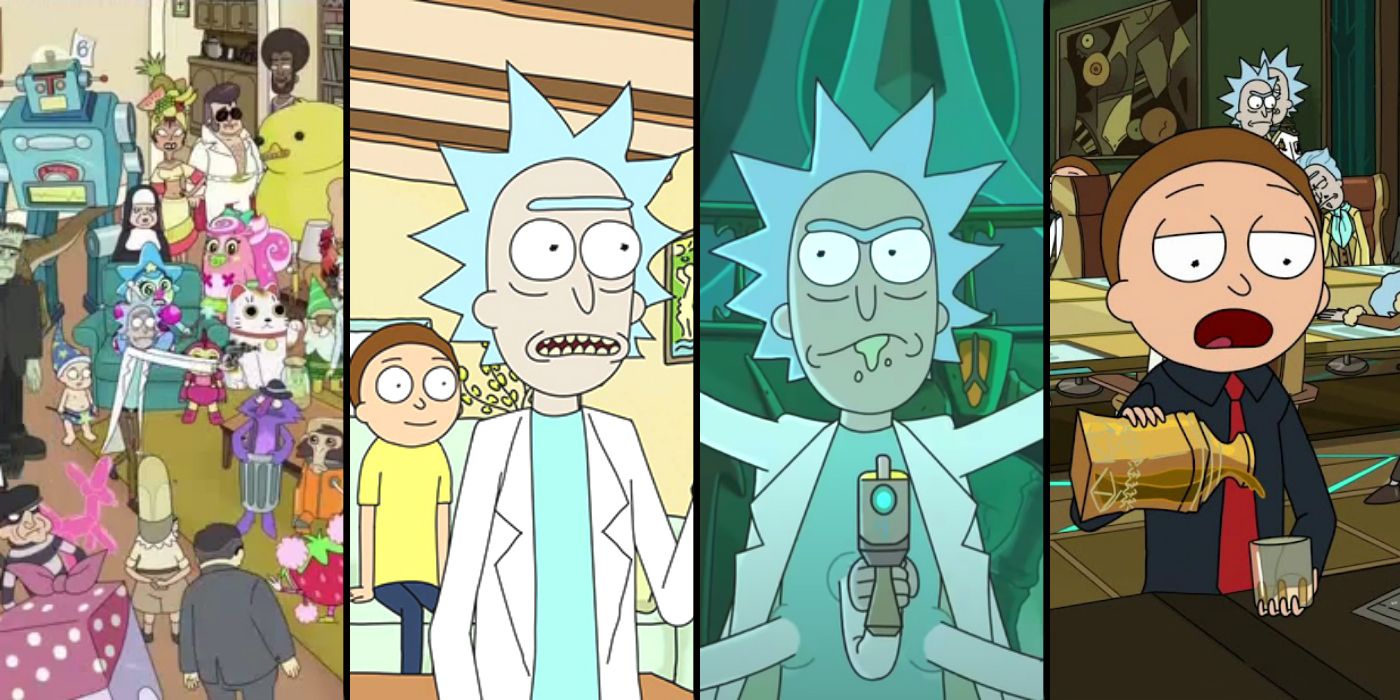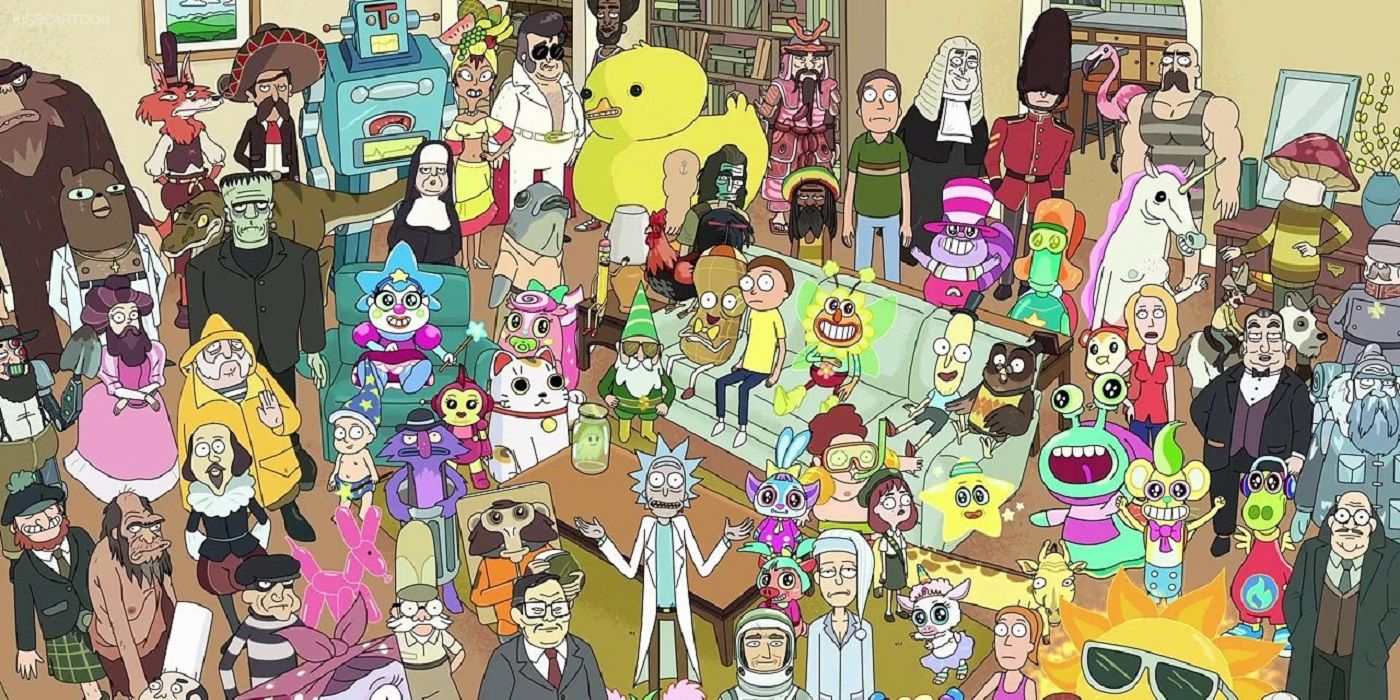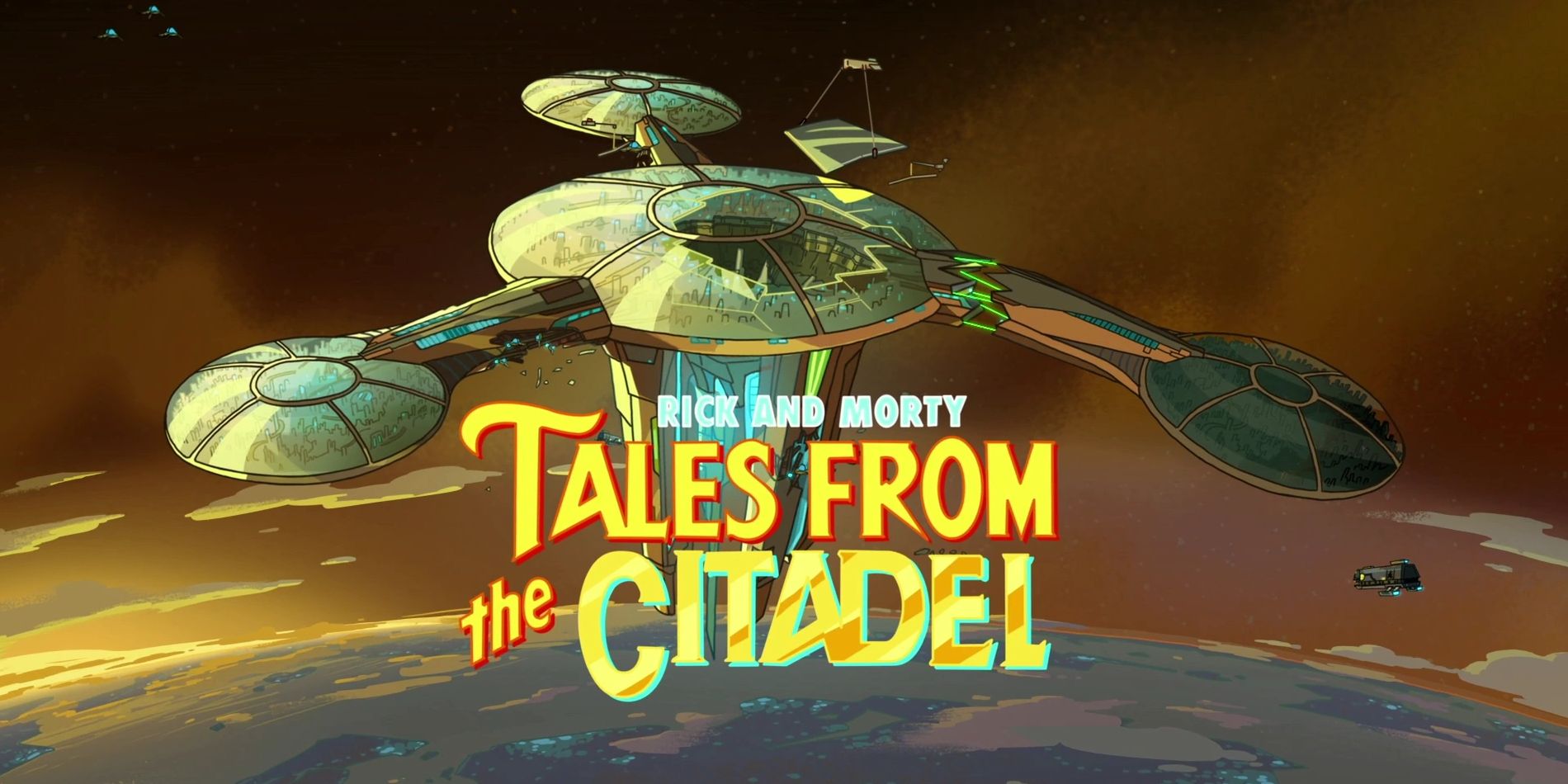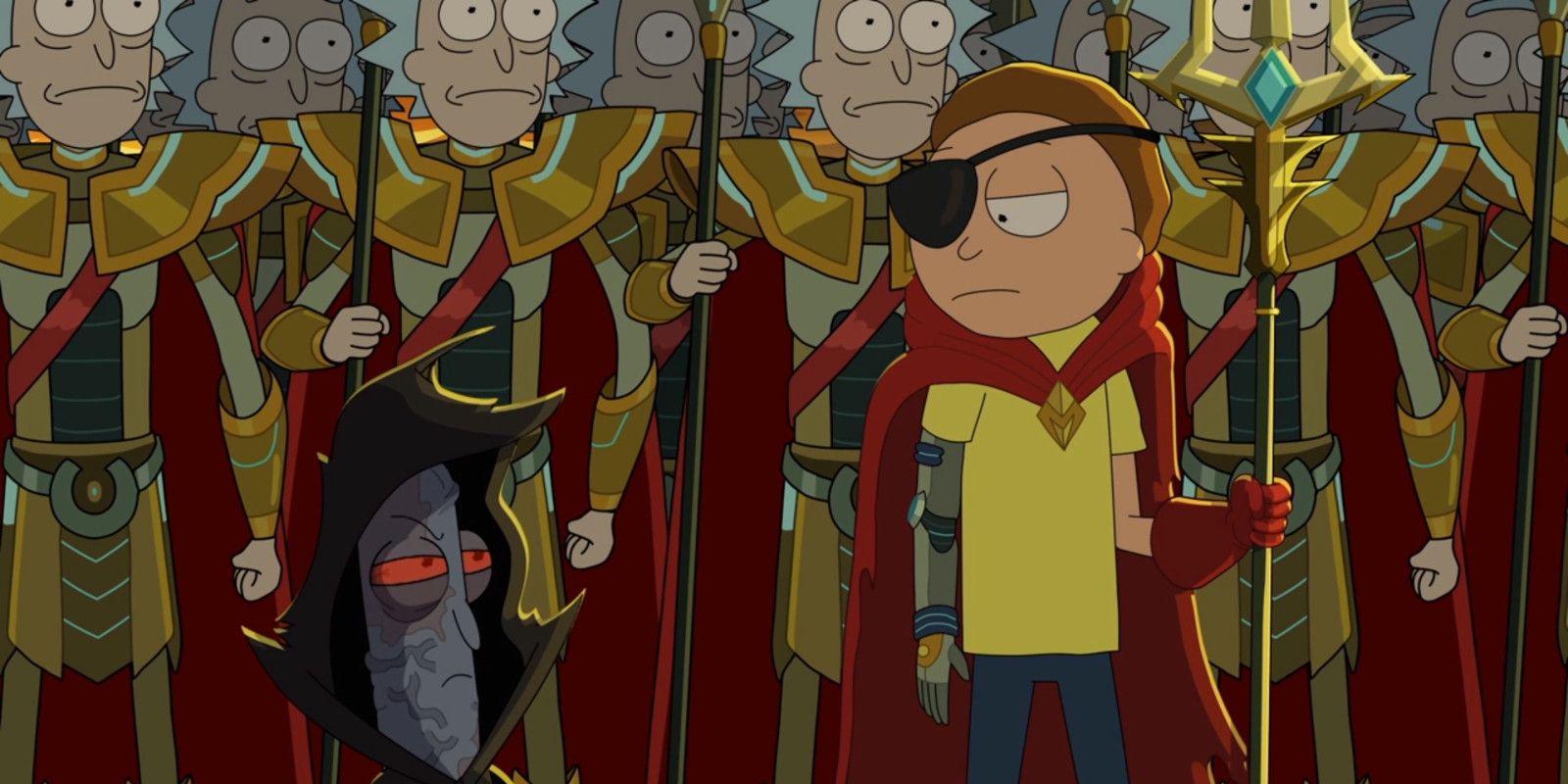Adult Swim's Rick and Morty has aired four seasons so far, and here is the best episode from each of them. The absurdist science-fiction comedy follows the increasingly over-the-top adventures of mad scientist and resident miscreant Rick Sanchez (Justin Roiland), whose scientific genius and inflated sense of ego usually spells doom for the rest of his family, particularly his grandson Morty (also voiced by Roiland). The series has quickly become a pop culture phenomenon in the 7 years since its debut, with legions of fans latching onto its distinct brand of referential postmodernist comedy and nihilistic characters.
Of course, the heady ideological concepts that drive the show's themes work right alongside the absolutely sci-fi concepts worked into every episode. In just 41 episodes, the show has tackled genre tropes ranging from disgusting Cronenberg-esque body horror to a brilliantly convoluted Terminator parody. The show never tackles the exact same tropes twice, making for a series in which each episode is (usually) a unique, self-contained adventure.
While each season of Rick and Morty maintain a consistent level of quality, there are certainly episodes that rank higher than the rest. And each of those standout episodes exemplify (and sometimes transcend) what the show has established itself to be.
Season 1 - Rixty Minutes
Arguably season 1's point of no return, "Rixty Minutes" is the episode of Rick and Morty that finally revealed to audiences just how bizarre the show was inevitably going to be. Rick & Morty season 1, episode 8 is a definite highlight for most people, as it's the first episode of the series to introduce the anthology format that would return once each season. Jumping effortlessly between an exceptionally over-the-top action movie trailer that's "just about two brothers," to a foul-mouthed and cynical take on Garfield, Rick's inter-dimensional cable device has it all, provided almost entirely by Justin Roiland's improvisational voice acting techniques.
"Rixty Minutes" also exemplifies the distinct paradox that drives a lot of the show's narrative: domestic family life juxtaposed against nihilist existentialism. When Rick's inter-dimensional tech leads Summer Smith (Spencer Grammer) to discover that her parents never intended to have her, she nearly has an emotional breakdown. What dissuades her is a conversation with Morty, where he reveals that he and Rick are actually from an alternate universe and aren't even her real relatives. While this might be devastating to some people, Morty uses it to convince Summer that in the grand scheme of things, nothing really matters, and that she should live her life beholden to no one but herself. This is a perfect encapsulation of the overarching themes of the series, packaged into a neat anthology that most other shows would have used as a filler episode.
Season 2 - Total Rickall
While the actual subject matter of Rick and Morty episodes vary wildly, each of them play around with common tropes from pulp genres such as sci-fi, horror, and occasionally fantasy. Some episodes weave these tropes in subtly, like in "Something Ricked This Way Comes,"or more directly, like the heist film takedown found in "One Crew Over The Crewcoo's Morty." However, the best episode of the show's sophomore season can be found right in-between both options with season 2 episode 4, "Total Rickall."
With a cold open that introduces the audience to several new members of the Smith household, before revealing that they're actually alien parasites, this episode is a masterful weave of the mind-bending antics of films such as Total Recall, with the infectious suspense of horror movies like The Thing. The result is a unique and unpredictable experience that winks at its inspirations without wearing them on its sleeve. The fake memories implanted by the aliens are vignettes of increasing absurdity, including an entire subplot in which Jerry Smith (Chris Parnell) recalls an emotional affair with a man named Sleepy Gary. The premise never grates or wears thin, as the episode keeps audiences guessing right down to the surprising introduction of one of the show's most beloved characters, Mr. Poopybutthole (Justin Roiland).
Season 3 - Tales From The Citadel
By the very nature of the show's status as an animated adult comedy, most episodes follow a discontinuous narrative from episode to episode, with a loose concept of canon that generally follows the same characters (although a strong case can be made to the contrary). This allows for the sheer versatility in the humor and concepts presented by the show, but watchful audiences have clung to the idea that there's some grand, overarching narrative behind it all. While that's not something that has been expressly confirmed by the show or showrunners, they don't shy away from teasing at it, most notably in the reoccurring appearances by Evil Morty and the Council of Ricks.
Rick & Morty season 3 episode 7 combines the two in a shocking way, tricking fans into thinking that it was just a throwaway adventure entitled "The Ricklantis Mixup," before pulling the rug out from under them by revealing itself as a follow-up on the state of The Citadel following Rick's destruction of the Council. Since then, it has quickly grown into a multi-faceted society, with essential workers, thriving businesses, and even a political election, one that is won in a landslide by a Morty candidate. Of course the episode ends with a reveal that the new President Morty is none other than Evil Morty, hinting at an inevitable grand showdown, but that isn't exactly the point. As shown through the varied and unique perspectives of those living in The Citadel, the real overarching story of the show is simply the relationship between Ricks and Mortys; the ways that they differ and the ways in which they're the same across the multiverse.
Season 4 - Never Ricking Morty
If Rick & Morty season 3 seemed to be feeding the flames of a traditional overarching canon, season 4 turned face and did the exact opposite, eagerly rejecting preconceived notions of what episode structure and content for the series has to look like. This time the showrunners were breaking all the rules, including their own self-imposed ones. It seemed as if the series was actively fighting back against definition and embracing the narrative relativism at its heart, and nowhere is that more evident than in season 4 episode 6, "Never Ricking Morty."
Part-anthology, part-metatextual self-analysis, and part-toy commercial, the entire episode works as an allegory for Dan Harmon's story circle archetype. The episode starts with Rick and Morty somehow finding themselves on a train filled with strangers seeking to kill Rick Sanchez, before quickly devolving into total surrealism once the two of them realize that they're trapped in a literal plot device. Outside the vehicle continuity and canon are untapped vortexes; inside, what's real and not real is dictated by the reality-warping machinations of the Story-Lord. However, the biggest reveal of the episode is that it all takes place inside a toy train bought from the Citadel by a Rick for his Morty. The message is loud and clear. Rick and Morty's canon is fast and loose, like a roaring locomotive, and the best episodes bend and shape that continuity into satisfying fit for the story being told.





